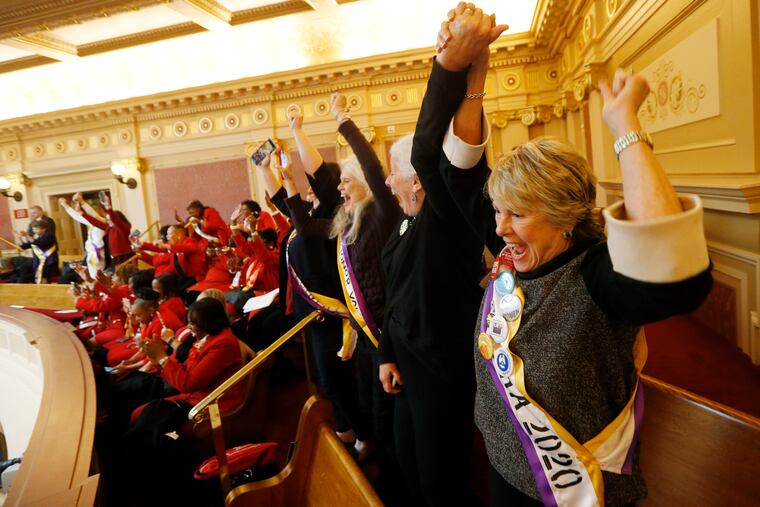Mother’s Day should be a reminder of women’s strength — and the inequality that still exists | Opinion
Women have made progress in 100 years. But gender equality is an unfinished business.

My all-time favorite “Mothers Save the Day” story is perfect for 2020, the 100th anniversary of American women’s voting rights. I won’t say it proves mothers are right but does illustrate how little-known women have influenced the course of history.
The year was 1920. Harry Burn was 24 and serving his first term in the Tennessee legislature. A political conservative, he wore a red rose on his lapel to signal opposition to women’s voting rights. Harry’s mother, Febb Ensminger Burn, sided with those who wore yellow roses, in solidarity with the suffragists.
Tennessee’s legislature was about to vote on ratification of the 19th Amendment to the U.S. Constitution as the 36th and last state needed for passage. The House seemed deadlocked in a tie.
The morning of the crucial vote, Harry received a note from mom. “Be a good boy,” Febb wrote, and “vote for suffrage!”
Harry was a good boy. And the rest is history.
Stories in which mothers — and women without children — save the day abound in history, and new stories are being written daily during the COVID-19 crisis.
Two themes many of these stories have in common speak to the overarching narrative of progress toward women’s equality.
Theme 1: Times of crisis can be times of opportunity for women.
Having our world turned upside down tends to shake out widely held beliefs about what is normal. The most recent prior pandemic — the Spanish flu of 1918 — came during World War I, when the military drew more than four million American men out of the workforce. In one year, the flu killed 675,000 Americans and 53,402 died in combat.
The massive death toll caused a labor shortage in male-dominated industries. Women stepped in as workers and leaders. Their willingness and ability to do “men’s work” ultimately shifted public opinion enough to get the 19th Amendment ratified.
A similar economic jolt came during World War II. Rosie the Riveter had more than 19 million sisters in the civilian labor force. Many struggled with both workplace discrimination and sole child care responsibility. Yet the experience emboldened more women — and men — to believe “the fairer sex” deserved to be treated fairly in employment, pay, and benefits.
Theme 2: Times of crisis can be times of hardship for women.
COVID-19 has caused a public health crisis as well as unprecedented disruption of America’s society and economy. In the media every day are stories of mothers saving the day as health-care heroes, as teachers leading remote classrooms, and as working parents coping with children cooped up 24/7.
Meanwhile, the economic hardships are hitting women hardest. Women are the primary workers in 18 of the 25 lowest paid jobs — jobs with meager benefits, if any. Lower-income workers have suffered the most job losses, and women have filed 60% of the initial unemployment claims.
Yes, women have made progress in 100 years. But gender equality is an unfinished business. In 2009, when I launched Vision 2020, the national women’s equality coalition headquartered at Drexel University, I believed this year could be a tipping point.
It still can be, despite the pandemic having delayed until Aug. 26 — National Women’s Equality Day — the start of Vision 2020’s Women 100 programs and events celebrating American women and setting the agenda to achieve full equality.
» HELP US REPORT: Are you a health care worker, medical provider, government worker, patient, frontline worker or other expert? We want to hear from you.
A major goal of Women 100 is to break the record for women voting in the 2020 national election. Anyone can join the nonpartisan effort at Vision2020Votes.org. If we are successful, and more women than ever vote on Nov. 3, that will become my new all-time favorite mothers save the day story.
Lynn H. Yeakel is the president of Vision 2020 and director of the Institute for Women’s Health and Leadership at Drexel University’s College of Medicine. She was a U.S. Senate candidate, a founder of Women’s Way, and the Mid-Atlantic regional director for the U.S. Department of Health and Human Services.